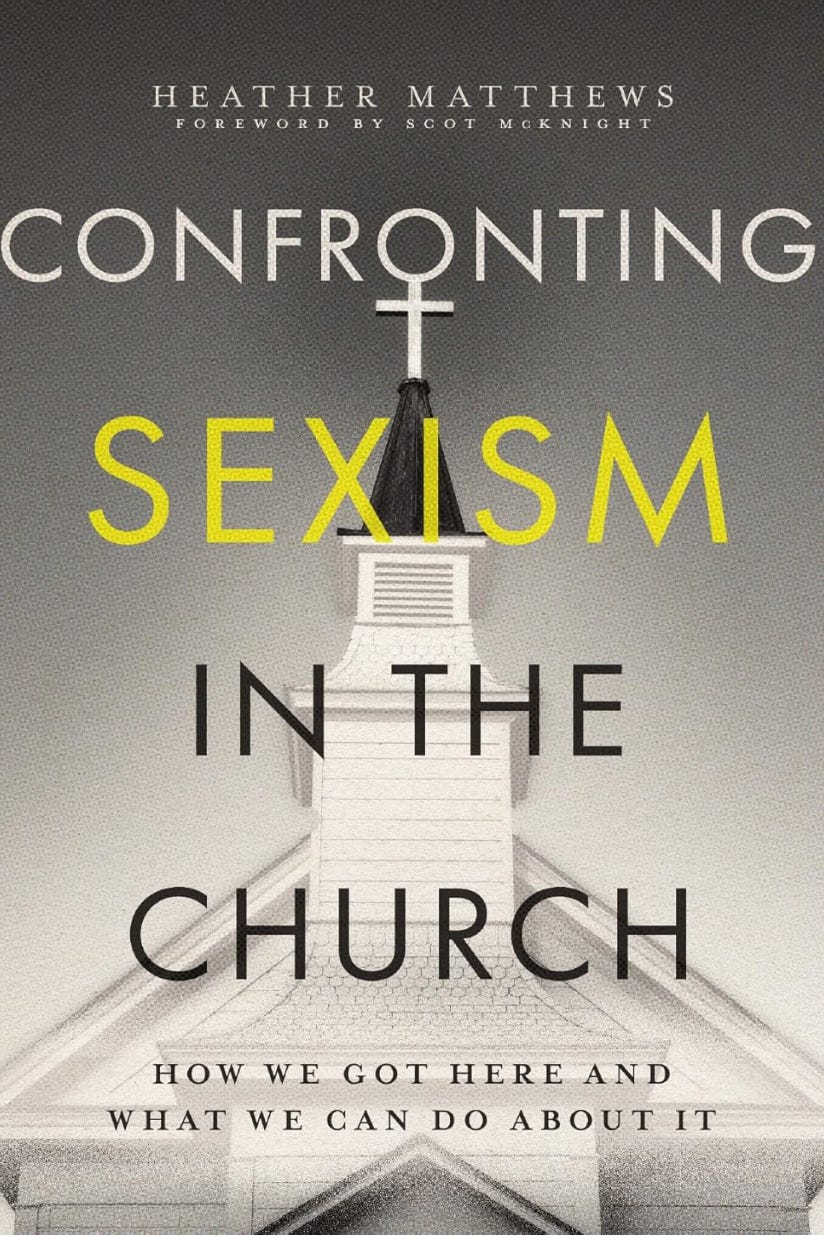By Laura Mott Tarro
I felt a call to ministry at the age of fifteen. I told God I was willing to follow wherever he led and to do whatever work he gave me to do. I grew up in a complementarian church that debated whether a woman could lead the choir because that constituted leadership over men. My imagination for women in Christian leadership was limited.
[SMcK: This is in our series on Heather Matthews and Scot McKnight, Confronting Sexism in the Church How We Got Here and What We Can Do about It.]
After college, I went into full-time, parachurch ministry. I found that I was able and encouraged to do the work, but I was passed over for promotion and my opportunities for development were limited. I attended a seminary in my early twenties where my presence was viewed with suspicion. I felt like I was grudgingly tolerated in that space. I got my degree but made few friends and received no mentorship or investment from my professors. After seminary, I went to work as a youth director for a church that ordained women, but there the gospel felt hidden. In frustration, I cried out to God, “Where can I go with this calling?”
Heather Matthews had a similar experience, “There seemed to be no churches who welcomed me as a female leader or were willing to develop me and my gifts.”[1] There is no obvious pathway for most women to pursue Christian leadership. In fact, the pathway is often strewn with invisible roadblocks. I remember telling God in my late twenties that there seemed to be no place for me to use my gifts. I would give up vocational ministry and pursue another career. I would become a ministry volunteer, because everyone loves a volunteer. Never mind that I already had extensive ministry experience and a seminary degree.
And for the next thirteen years, this is what I did. I volunteered in church and parachurch ministry. I wrote and led Bible studies. I taught adult Sunday school classes. I fundraised and led a ministry board for a local parachurch ministry. I helped lead a weekly worship service. I became a teacher for a women’s ministry program. My vocation was freelance editorial work in academic Christian publishing. I proofread books written for pastors and seminary students.
And then in my late thirties, God interrupted my life one afternoon as I emptied the dishwasher. I heard God say, “I’m preparing you for pastoral ministry.” I paused and thought, “Well, that’s a nice broad category. All right, Lord, you’re going to have to show me what that means.” I wasn’t opposed to the idea, but in my heart, I felt like I had been down this road before. I was willing, because I had told God in my teens that I would follow where he led and do whatever work he gave me to do. My answer was “Yes,” but also, “How?”
I was not in the habit of getting clear direction from God. A part of me wondered if I had imagined the whole thing. I didn’t forget or disregard what I’d heard from God, but I didn’t know what to do with it either. I set it aside. Several months went by, and one day I was sitting on my couch folding laundry and minding my own business when I felt God say, “I want you to start a church.” This time, my first reaction was to start laughing. I nearly fell off the couch. And then I remembered what happened to people in the Bible who laughed at God. “Lord,” I said, “I’m not sure I’m qualified to start a church, but if this is from you, you are going to have to make this really clear. I’m willing.”
A few weeks later a publisher reached out about a quick proofreading assignment. I had time in my schedule, so I accepted the job without knowing the content of the book. Soon after, a box with the manuscript arrived on my front porch. I picked it up and took it into my office. When I opened it up, I found it was a how-to guide about planting churches. I laughed out loud. I told God he had a funny sense of humor and began to wonder how I was going to explain to my husband that God told me to plant a church. When I finally worked up the courage, my husband’s response surprised me, “That makes sense,” he said, “All your experiences have prepared you for this.”
Heather Matthews states that, “In order to address sexism in Christian leadership, we must consider the importance of male allies, the importance of developing female leaders, and the importance of women’s voices.”[2] Male allies are essential in the process of helping female leaders navigate their journey into leadership. For me, this looked like a pastor who gave me an opportunity to serve as a pastoral intern. He helped me identify the gaps in my training and experience that needed attention before I could plant a church.
Women often have opportunities to lead in Christian ministry with no formal means of professional development. Or they may find themselves in systems that block their development. Recently, I met with a bright young woman who was fired from her church job. She was clearly capable. She had glowing performance reviews. The problem was that her obvious giftedness called into question the church’s policy about women in leadership. The church eliminated her role at a time in the ministry season where it would be less noticeable and told everyone she was moving on to bigger and better things. Instead of developing her leadership, they removed her from her role. She is now looking to restart her career in a new organization. Women may need to find new systems in which to flourish in Christian leadership. In my own life, I had to find a new denomination that was intentional about identifying and preparing women for professional Christian leadership.
Finally, Matthews points out the importance of women’s voices. I grew up without seeing or hearing from women in Christian leadership. I had no imagination for women in these roles. Women offer a unique perspective on scripture. Women identify issues in community that male leaders might miss. As Matthews states, “We need the shared leadership of men and women with their experiences, skills, talents, and perspectives to address the most difficult challenges in the world today.”[3] We need the whole church answering God’s call to lead and minister to the needs of a hurting world.
[1] Heather Matthews and Scot McKnight, Confronting Sexism in the Church How We Got Here and What We Can Do about It (Westmont: InterVarsity Press, 2024), 138.
[2] Matthews and McKnight, 139.
[3] Matthews and McKnight, 153.






"The problem was that her obvious giftedness called into question the church’s policy about women in leadership." Yup. Women threaten the culture of the church. Since their theology doesn't support God preparing women for leadership, they dispose of the "problem".
I have to admit I was in a state of "blissful" ignorance about the magnitude of sexism in the church. Having become an evangelical in churches with women pastors (one of them led by a woman pastor), it was only a few weeks ago that I realized how, on the rickety basis of 1 Timothy 2, a whole edifice of exclusion was built. This series has featured various posts now, but I want to applaud Heather, Scot, and all the contributors for their eye-opening testimonies about their experiences of sexism in the church. (I would also add Sandra Glahn's foreword to "40 Questions about Women in Ministry.") Let us hope that such testimonies will become fewer and fewer, and that women's experiences of church and in church will be filled instead by the same love that Jesus denied to no one—a truth exemplified by the fact that the post-resurrection church began with Mary Magdalene's faith.